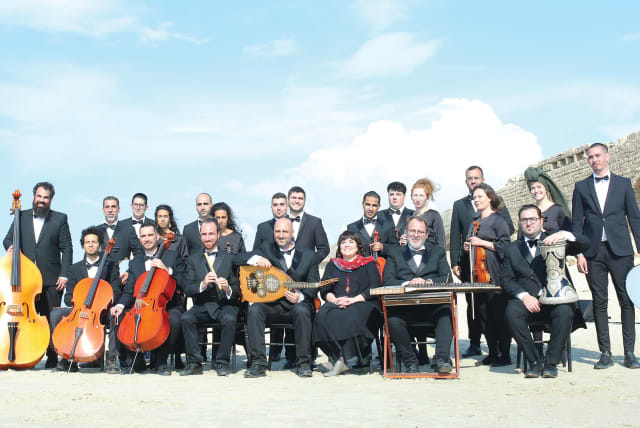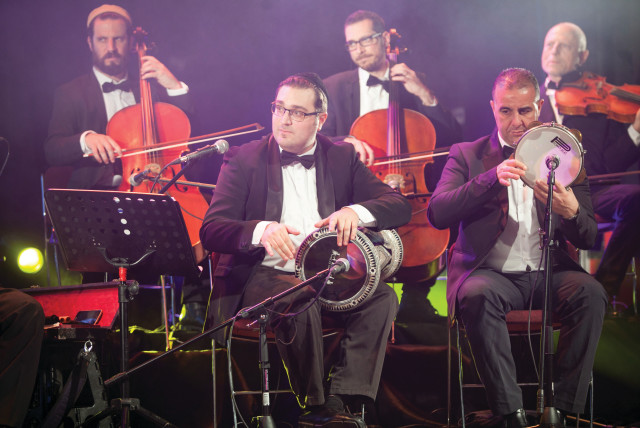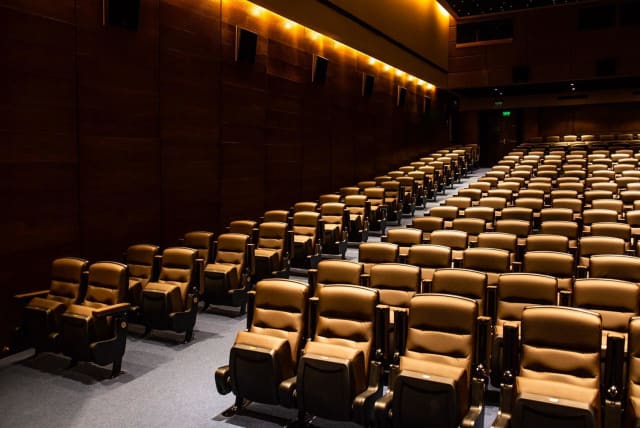They say, if you hang around long enough you are bound to eventually find yourself slap-bang in the safe and financially rewarding cultural mainstream. In some areas of creative pursuit you might, at some stage, even come back into fashion. That, unfortunately, has never been an issue for the Arabic music folk.
In fact, musicians who made aliyah from Arab countries did not have the softest of landings here. The likes of the El-Kuwaiti brothers, Saleh and Daoud, who were King Faisal II of Iraq’s favorites – he implored them not to leave Iraq – left the big time behind them when they came to the Promised Land. After being lauded, not only in Iraq but throughout the Arab world, for their musicianship and artistry, they found themselves in the nascent state of the Jews basically treated as second-class citizens.
From being lauded in the Middle East to second-class Israelis
The Ashkenazi establishment that ruled the roost here in those days did not set too much store by non-Western music. Ariel Cohen notes that was nothing new. Cohen is the founder, artistic director, percussionist, and vocalist of Firkat al-Noor (Orchestra of Fire) which started life almost 10 years ago. The ensemble performs in this year’s Israeli Music Festival, the 26th edition of which takes place in Jerusalem, Zichron Yaakov, Haifa, Beersheba, and Tel Aviv, September 18-22. All concerts are free, and sponsored by the Ministry of Culture and Sports.
Artists who hailed from beyond the then exclusively acceptable Western Pale generally found themselves sidelined by the authorities and by society.
“That began a long time before the state was created, before the mass aliyah [of 1949-51, from Iraq and other Arab countries],” Cohen explains. “Ezra Aharon was the first notable musician who came here, from an Arab country.”
AHARON, LIKE the Al-Kuwaiti brothers, had been a bona fide A-lister of the Arabic music world.
“He came here in 1934, from Iraq. He had been a star. He performed in Egypt in 1932, at the First Arabic Music Congress in Cairo.” He went there with a bundle of street cred. “He was the head of the Iraqi delegation which was almost entirely made up of Jews, with just one Muslim singer. He was praised to the heavens there.”
However, the good times were about to end.
“After he returned to Iraq he felt he was being hounded,” says Cohen. “His Jewishness stood out, to his detriment, so he made aliyah.” Interestingly, that was after Hitler rose to power in Germany, although the Nazis began stirring up antisemitic sentiment in Iraq, in earnest, only after the outbreak of WWII.
Aharon did not exactly get the red carpet treatment when he got here.
“He comes to Jerusalem and finds a musical wasteland,” Cohen states. “The great musicians from the Arab countries had not yet arrived. They only got here after the establishment of the state.”
Still, Aharon did his best to kickstart the scene and, somehow, recruited a bunch of decent musicians to set up an ensemble that played on the Palestine Broadcasting Service run by the British during the Mandate era.
In terms of the standard of musicianship, things improved in leaps and bounds when the Al-Kuwaitis and other top musicians, like nai (flute) player Albert Elias, qanoun player Avraham Salman, and oud player Elias Shasha made aliyah. The talent was certainly there, but there were precious few opportunities for them to strut their stuff.
That was part of the thinking behind Cohen’s decision to found Firkat al-Noor which now numbers around 25 members including Jews, Muslims, Christians and Druze, secular and religious, men and women. They all share a love for the universal language of music.
“That is what is important to us,” says Cohen. “When we take a break in a rehearsal, for coffee and a smoke, if anyone starts talking politics we stop them in their tracks. The only thing that interests is the music.”
The founder says that, despite the passing of the years and the wider acceptance of Arabic music here, it still wasn’t easy getting the orchestra together. Cohen, who has Moroccan roots, was brought up on Arabic music and he wasn’t about to settle for anything less than the real thing. As a friend once incisively, and just a little cruelly, observed, “Life is harder when you have ideals and principles.” Cohen took the tough uncompromising route to putting his lifelong love of Arabic music into estimable lyrical creative form.
I note that increasing numbers of blue-eyed, fair-haired folk have taken to strumming an oud, beating time on a darbouka, or trilling out captivating ethereal airs on a nai in recent years and that the Arabic music hinterland in this country is significantly expanding.
Cohen goes along with that premise but notes that he is far more interested in quality rather than quantity.
“It is a matter of accent,” he declares. That doesn’t infer an Iraqi take on the charts as opposed, say, to the Egyptian genre. “I don’t have to listen to an instrumentalist play for long to get where he is coming from. I can listen to them for 20-30 seconds and I’ll get his accent. He might be playing a classical Egyptian song, but his accent might be Israeli or anything – not Egyptian.”
AS FAR as Cohen is concerned, you have to walk the genuine walk.
“When you hear music played by someone who exclusively plays, lives, breathes, and eats classical Arabic music, you hear the classical Arabic accent.”
Not that Cohen has any problem with intercultural mixes. “The Kol Israel Arabic Orchestra had musicians from Egypt, Iraq, the Maghreb, Syria, all over. That is what is special about Israel – this rich mix of cultures. You don’t get that mosaic anywhere else in the world.”
For his Firkat al-Noor project, Cohen adopted a single-minded approach.
“We focus on Egyptian music. That means classical Egyptian music from the last 80-100 years. That is the most popular music in the Arab world. In Iraq they played Iraqi music and Egyptian music. In Morocco, they played Moroccan music as well as Egyptian music.”
Cohen chose his ensemble colleagues painstakingly and made sure they were all at the top of their musical game and were well versed in the requisite disciplinary syntax, and the spirit of the Egyptian school of melodic craft.
Over the past decade, Cohen et al have performed a broad range of works, written and/or popularized by some of the titans of the Egyptian musical hierarchy, the likes of divas Oum Kulthoum, Asmahan, and Jewish singer Leila Morad, and singer-composers Mohammed Abdel Wahab and Farid al-Atrash. They also play works written by Cohen and other members of the group.
Firkat al-Noor has also done it where it really matters, in Egypt, Dubai, and Morocco. Cohen is particularly proud of those dates.
“We played at the Israeli ambassador’s home and also for an audience of upper-class Egyptians. They asked us to play all kinds of songs – some were pretty challenging – and we played them all. They didn’t care where we were from, or what our religion was. They felt we respected the music. That’s the only important thing.”
And the fact that Arabic music finds itself slotted into the Israeli Music Festival lineup is also a mark of how far things have progressed and that, finally, the cultural powers-that-be here are ready to accept Arabic music as a genuine art form that should be respected just as much as Mozart, Haydn, and the rest of the western classical gang, along with the work of contemporary composers such as Oded Zehavi, Boaz Ben Moshe and Ziv Cojocaru.
For tickets and more information: israelmusicfest.co.il/ and eventbuzz.co.il/producer/v2/musickfest








































































































